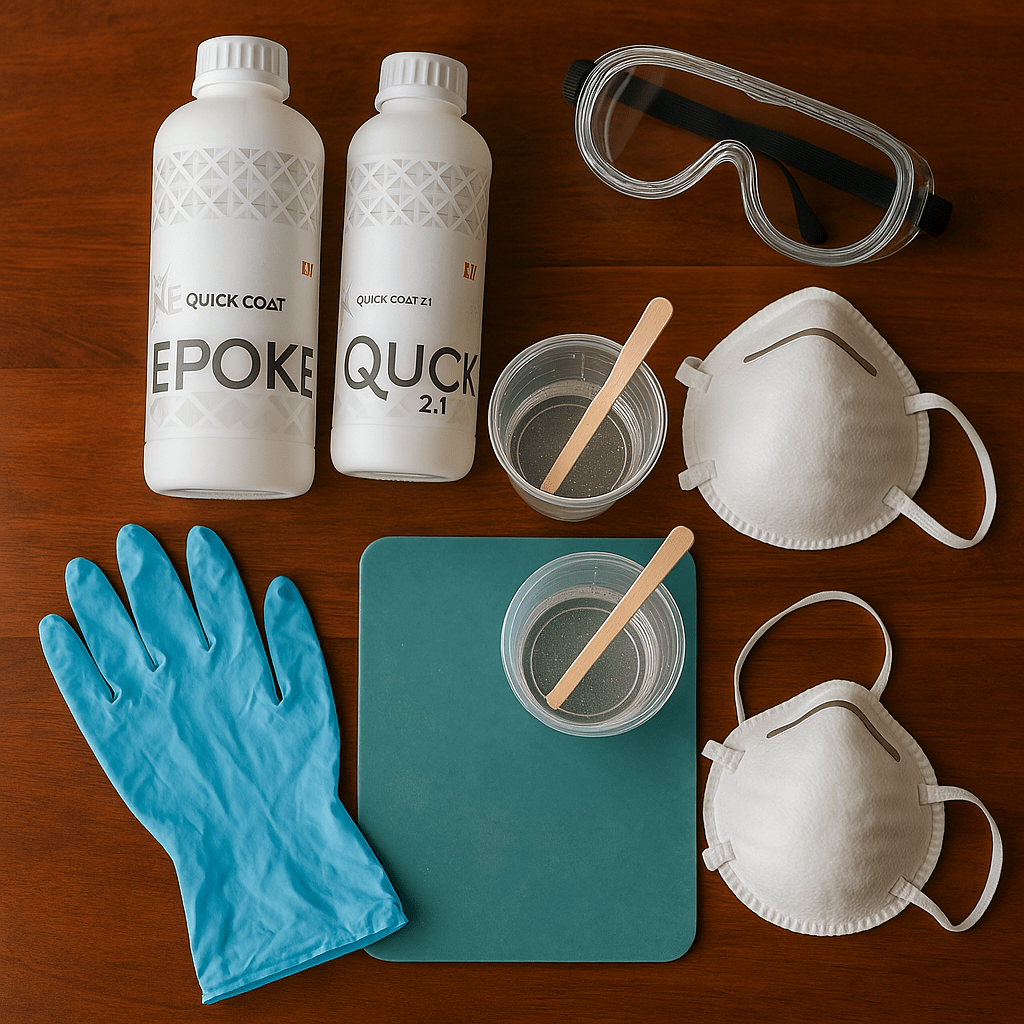
Epoxy Resin Safety Tips: What Every Beginner Should Know

If you’re just getting started with epoxy resin art, you’re probably focused on color pigments, silicone molds, and creating something beautiful. But before anything else, there’s one thing you need to get right: epoxy resin safety.
We work with resin all the time here at ResinArtHub, and we've seen how important it is to build good habits from the start. Resin is amazing to work with — but it’s also a chemical. That means you need to treat it with care to keep yourself (and your workspace) safe.
So let’s go over some simple but essential resin safety tips that every beginner should follow.

1. Work in a Well-Ventilated Area
Resin releases fumes while it cures, especially during the mixing and pouring stages. Always work in a space with open windows, a fan, or air flow. If you're indoors, try placing a fan near a window to help direct the air out.
Tip: Never use resin in closed, stuffy spaces like bathrooms or bedrooms.
2. Wear Gloves and Avoid Skin Contact
Epoxy resin can irritate the skin or even cause allergic reactions over time. Always wear nitrile gloves (not latex), and avoid touching the resin with your bare hands.
If resin touches your skin, wash it off immediately with soap and water — not alcohol wipes, as they can push the resin deeper into your skin.
3. Use a Respirator If Needed
For regular hobby use with quality resin in a ventilated space, a fan may be enough. But if you're working frequently or in a smaller space, it’s smart to wear a respirator with organic vapor filters.
You don’t need anything too fancy — but protecting your lungs is always a good long-term move, especially if you’re making resin art often or in bulk.
4. Cover Your Workspace

Resin is sticky and permanent once cured. Cover your workspace with silicone mats, baking paper, or even cardboard before you pour.
Also keep baby wipes or rubbing alcohol on hand for quick cleanup while resin is still wet.
5. Avoid Eating, Drinking, or Touching Your Face While Working
We know how tempting it is to sip your coffee while pouring resin — but don’t! Resin can transfer from gloves to cups, mugs, and food. Keep all snacks and drinks far from your workspace.
Wash your hands properly before touching your phone, face, or anything else.
6. Measure and Mix Properly

Incorrect mixing can lead to resin that stays sticky or doesn’t cure correctly — and uncured resin can be more irritating to the skin or release fumes longer than expected.
Always follow the resin's instructions (e.g. 2:1 or 3:1 ratio), and mix slowly for at least 3-5 minutes until fully blended.
If you’re using Epoke Resin from our Resin Collection, the ratios are printed clearly on the label and website.
7. Store Resin Safely
Keep resin and hardener bottles tightly closed, away from direct sunlight and out of reach of kids and pets. High heat or cold can ruin the formula.
Also, don’t pour leftover resin down the sink — cured resin is safe, but uncured resin is not water-safe.
Want to know how long resin lasts once opened? Click here to check our FAQ page.
8. What to Do If You Have a Reaction
If your skin gets itchy or irritated after using epoxy resin, stop using it and check with a doctor. Even if you’ve used it before with no problem, allergies can develop over time.
Always switch to a low-odor, artist-grade resin like Epoke Self-Heal or Quick Coat if you’re concerned about sensitivity.
Final Thoughts

Epoxy resin is fun, creative, and super satisfying — but it should always be used safely. Once these habits become part of your routine, resin art gets a lot easier (and cleaner too).
If you're new, check out our full Resin Art Collection or join one of our Resin Workshops in Dubai to learn everything hands-on.
Stay safe and creative!
From all of us at Resin Art Hub 🌟
Frequently Asked Questions: Resin Safety
Can resin cause allergic reactions?
Yes, repeated skin exposure can cause sensitivity or allergies. Always wear gloves and work clean.
Is resin safe to use indoors?
Yes, but only in a well-ventilated area. Never use it in closed spaces without airflow.
What happens if I use the wrong mixing ratio?
The resin may not cure, can stay sticky, and might release more fumes — always follow the instructions exactly.
Can I work with resin while pregnant or breastfeeding?
It’s best to avoid unless cleared by a doctor. Resin is a chemical, so extra caution is always recommended.
How long does resin last once opened?
Check our detailed answer here: Resin Shelf Life & Storage Tips.
